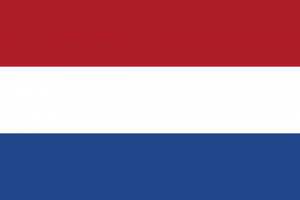Difference between revisions of "Language/Dutch/Grammar/How-to-Use-Have"
m (Quick edit) |
m (Quick edit) |
||
| Line 113: | Line 113: | ||
|description=In this lesson, we will learn how to use the verb "have" in Dutch. We will look at the different forms of the verb and how to use it in sentences. | |description=In this lesson, we will learn how to use the verb "have" in Dutch. We will look at the different forms of the verb and how to use it in sentences. | ||
}} | }} | ||
==Related Lessons== | |||
* [[Language/Dutch/Grammar/The-Accusative-Case-in-Dutch|The Accusative Case in Dutch]] | |||
* [[Language/Dutch/Grammar/Ablative-Case-in-Dutch|Ablative Case in Dutch]] | |||
* [[Language/Dutch/Grammar/Genitive-Case-in-Dutch|Genitive Case in Dutch]] | |||
* [[Language/Dutch/Grammar/Cardinal-Numbers-in-Dutch|Cardinal Numbers in Dutch]] | |||
* [[Language/Dutch/Grammar/Possessive-Case-in-Dutch|Possessive Case in Dutch]] | |||
* [[Language/Dutch/Grammar/Present-Continuous-in-Dutch|Present Continuous in Dutch]] | |||
* [[Language/Dutch/Grammar/Inclusive-Case-in-Dutch|Inclusive Case in Dutch]] | |||
* [[Language/Dutch/Grammar/How-to-use-“must”-in-Dutch|How to use “must” in Dutch]] | |||
* [[Language/Dutch/Grammar/Ordinal-Numbers-in-Dutch|Ordinal Numbers in Dutch]] | |||
* [[Language/Dutch/Grammar/Adjectives|Adjectives]] | |||
{{Dutch-Page-Bottom}} | {{Dutch-Page-Bottom}} | ||
Revision as of 00:33, 2 March 2023
Hi Dutch learners! 😊
In this lesson, we will learn how to use the verb "have" in Dutch. We will look at the different forms of the verb and how to use it in sentences.
Introduction
The verb "have" is an important verb in Dutch. It is used to express possession, relationships, and other meanings. In this lesson, we will look at the different forms of the verb and how to use it in sentences.
Forms of the Verb
The verb "have" has two forms in Dutch: hebben and heb. The form hebben is used in the present tense, while the form heb is used in the past tense.
Present Tense
The present tense of the verb "have" is hebben. It is conjugated as follows:
| Person | Singular | Plural |
|---|---|---|
| ik | heb | hebben |
| jij/u | hebt | hebben |
| hij/zij/het | heeft | hebben |
| wij | hebben | hebben |
| jullie | hebben | hebben |
| zij | hebben | hebben |
Examples:
- Ik heb een boek. (I have a book.)
- Jij hebt twee katten. (You have two cats.)
- Hij heeft een auto. (He has a car.)
- Wij hebben een huis. (We have a house.)
- Jullie hebben drie kinderen. (You have three children.)
- Zij hebben vier honden. (They have four dogs.)
Past Tense
The past tense of the verb "have" is heb. It is conjugated as follows:
| Person | Singular | Plural |
|---|---|---|
| ik | had | hadden |
| jij/u | hadt | hadden |
| hij/zij/het | had | hadden |
| wij | hadden | hadden |
| jullie | hadden | hadden |
| zij | hadden | hadden |
Examples:
- Ik had een boek. (I had a book.)
- Jij hadt twee katten. (You had two cats.)
- Hij had een auto. (He had a car.)
- Wij hadden een huis. (We had a house.)
- Jullie hadden drie kinderen. (You had three children.)
- Zij hadden vier honden. (They had four dogs.)
Usage
The verb "have" can be used to express possession, relationships, and other meanings.
Possession
The verb "have" can be used to express possession.
Examples:
- Ik heb een boek. (I have a book.)
- Jij hebt twee katten. (You have two cats.)
- Hij heeft een auto. (He has a car.)
- Wij hebben een huis. (We have a house.)
- Jullie hebben drie kinderen. (You have three children.)
- Zij hebben vier honden. (They have four dogs.)
Relationships
The verb "have" can also be used to express relationships.
Examples:
- Ik heb een broer. (I have a brother.)
- Jij hebt een zus. (You have a sister.)
- Hij heeft een moeder. (He has a mother.)
- Wij hebben een vader. (We have a father.)
- Jullie hebben een oom. (You have an uncle.)
- Zij hebben een tante. (They have an aunt.)
Other Meanings
The verb "have" can also be used to express other meanings.
Examples:
- Ik heb honger. (I am hungry.)
- Jij hebt dorst. (You are thirsty.)
- Hij heeft kou. (He is cold.)
- Wij hebben moe. (We are tired.)
- Jullie hebben pijn. (You are in pain.)
- Zij hebben verdriet. (They are sad.)
Conclusion
In this lesson, we have learned how to use the verb "have" in Dutch. We have looked at the different forms of the verb and how to use it in sentences. To improve your Dutch Grammar, you can also use the Polyglot Club website. Find native speakers and ask them any questions!
➡ If you have any questions, please ask them in the comments section below.
➡ Feel free to edit this wiki page if you think it can be improved. 😎
Related Lessons
- The Accusative Case in Dutch
- Ablative Case in Dutch
- Genitive Case in Dutch
- Cardinal Numbers in Dutch
- Possessive Case in Dutch
- Present Continuous in Dutch
- Inclusive Case in Dutch
- How to use “must” in Dutch
- Ordinal Numbers in Dutch
- Adjectives
